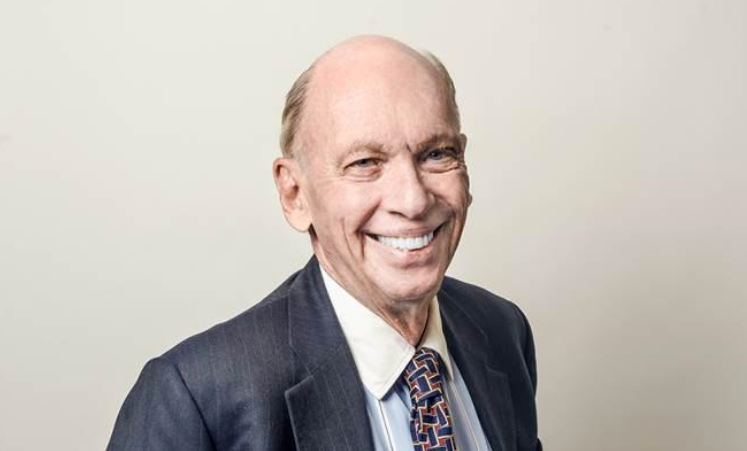The only time you hear Byron Wien's name is at the start of the year

I have a theory that Byron Wien died years ago but was cryogenically frozen and is unthawed once a year to reveal his 10 surprises. Wein was a legend before he retired in 2001 but at 84 he's been out of the game for a long time and Wall Street has a short memory.
He's only known now for releasing his 10 surprises annually and each year they seem to get less-and-less 'surprising' and closer to 'fractionally different or the same as the consensus'. That's pretty much what we have here.
Anyway, it's all in good fun and discussion so here is his list for 2017, which can be found here:
1. Still brooding about his loss of the popular vote, Donald Trump vows to win over those who oppose him by 2020. He moves away from his more extreme positions on virtually all issues to the dismay of some right wing loyalists. He insists, "The voters elected me, not some ideology." His unilateral actions throw policy staffers throughout the government into turmoil. Virtually all of the treaties and agreements he vowed to tear up on his first day in office are modified, not trashed. His wastebasket remains empty.
2. The combination of tax cuts on corporations and individuals, more constructive trade agreements, dismantling regulation of financial and energy companies, and infrastructure tax incentives pushes the 2017 real growth rate above 3% for the U.S. economy. Productivity improves for the first time since 2014.
3. The Standard & Poor's 500 operating earnings are $130 in 2017 and the index rises to 2500 as investors become convinced the U.S. economy is back on a long-term growth path. Fears about a ballooning budget deficit are kept in the background. Will dynamic scoring reducing the budget deficit actually kick in?
4. Macro investors make a killing on currency fluctuations. The Japanese yen goes to 130 against the dollar, stimulating exports there. As Brexit moves closer, the British pound declines to 1.10 against the dollar, causing a surge in tourism and speculation in real estate. The euro drops below par against the dollar.
5. Increased economic growth, inflation moving toward 3%, and renewed demand for capital push interest rates higher across the board. The 10-year U.S. Treasury yield approaches 4%.
6. Populism spreads over Europe affecting the elections in France and Germany. Angela Merkel loses the vote in October. Across Europe the electorate questions the usefulness of the European Union and, by the end of the year, plans are actively discussed to close it down, abandon the euro and return to their national currencies.
7. Reducing regulations in the energy industry leads to a surge in production in the United States. Iran and Iraq also step up their output. The increased supply keeps the price of West Texas Intermediate below $60 for most of the year in spite of increased world demand.
8. Donald Trump realizes he has been all wrong about China. Its currency is overvalued, not undervalued, and depreciates to eight to the dollar. Its economy flourishes on consumer spending on goods produced at home and greater exports. Trump avoids punitive tariffs to prevent a trade war and develops a more cooperative relationship with the world's second largest economy.
9. Benefiting from stronger growth in China and the United States, real growth in Japan exceeds 2% for the first time in decades and its stock market leads other developed countries in appreciation for the year.
10. The Middle East cools down. Donald Trump and his Secretary of State Rex Tillerson, working with Vladimir Putin, finally negotiate a lasting ceasefire in Syria. ISIS diminishes significantly as a Middle East threat. Bashar al-Assad remains in power.



